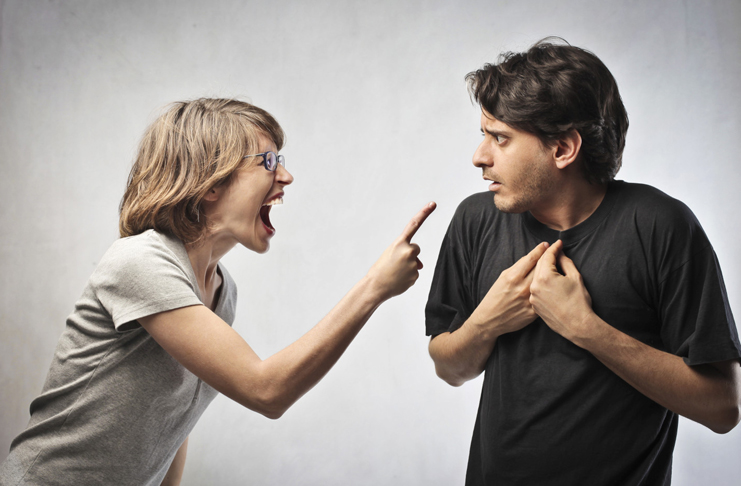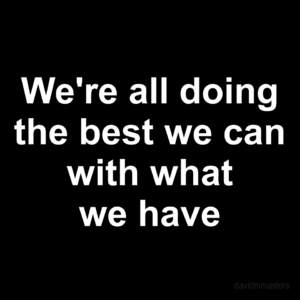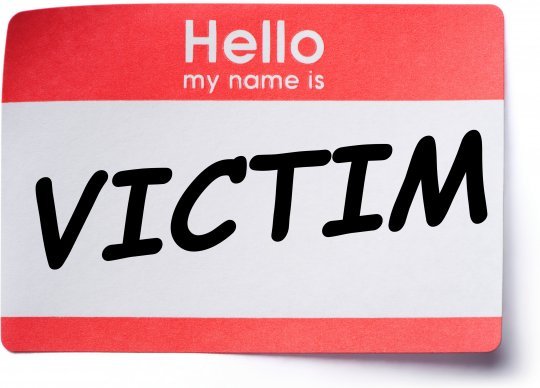So, things haven’t worked out quite as you had planned. You realize you’d been told that there would be hard times, but this is ridiculous. You knew there would be pain, and you know God would never give you more than you could take, so He must think you are beyond Herculean. No one knows better than you, that what doesn’t kill you makes you stronger, but how strong does one human need to be?
If you knew what effect all those thoughts that are rolling around relentlessly inside your head had on your life, you’d be rethinking what you’re thinking about, and if you knew what effect your feelings had on your life, you’d be finding ways to be more loving and happier post haste.
Do you believe you were born under a bad sign, always have bad luck, feel like a dark cloud follows you wherever you go? Do you find yourself feeling good about something in life, just waiting for it to fall apart? (And it does.)
Do you feel like you can’t trust anyone? Have you been victimized too much for there to be any hope for recovery?
No one would blame you for feeling bad. Go ahead and continue to suffer, then, when you’re ready, think about it and ask yourself,
What impact do your feelings have on your life?
Blaming anyone or anything helps alleviate the pain, establishing you as a victim of circumstances beyond your control, and others will be supportive or come to your aid, because they feel sorry for you, as you continue to feel sorry for yourself. This helps you feel a little bit better as you get ready for the next round of bad news.
This cycle of blame and victimization prevents you from taking control of your life. You are not likely to take responsibility for your life, the mistakes you have made, or take the action(s) necessary to take your life back.
And I promise you, as bad as you feel, as awful as you feel your life is, there are billions of people on our planet who have it so much worse than you, In comparison, their degree of daily suffering and painful deaths are inconceivable to you, or even me. It is utterly incomprehensible what so many of our brothers and sisters must endure every day on our planet. Yet, we continue to think that “we” have it so bad. Really?
In comparison, you have it surprisingly good.
I’m no better than anyone else. There have been times when I’ve felt so hurt, betrayed, isolated, and victimized that I could not see straight. All I wanted was someone to listen to my story, and hopefully feel as bad as me, as we wallowed in misery together. And this did offer me some relief. I did feel better.
Doing so was attracting more drama and trauma to me, and it was coming in as I was being distracted from the beautiful, love-filled, magnificent world that was all around me. I just could not see or access it while I was in the whirlpool of the cycle of blame and victimhood. It was there all around me, but I couldn’t see it, let alone touch it.
I had to take action and change my life, and I had to start by stopping. I had to stop telling my story of betrayal and victimization. I had to stop blaming others and/or the system for what happened to me. I had to stop hanging out with others who were stuck in their own cycle of victimization.
Instead, I had to start assuming full responsibility for my life, past, present, and future. This left no one to blame for what happened to me, and I had to find a way to start thinking about the good things in life and finding any way possible to find happiness, love, and joy. I found ways to be grateful for all the good things in life that I did have, and more good things started coming my way. I created opportunities to connect with people who were on a similar track, and I kept going.
You Can Transform From Victim to Mastery
Consider taking such action for your life. If you decide not to, no one would blame you, but if you trade your victimization for personal responsibility, focusing in the good things in life, happiness, love, joy, and gratitude, you might find yourself the undeniable master of your own destiny.
What if you create your world?
Experience the power of your being as you grow and expand in your own way. Watch as everything around you starts to change to match the new you that is emerging.
Love every moment of your life, let love fill you, and overflow into those around you.
You can have and do anything you want if you are ready to take inspired action to live a better life, your best life, and make the world a better place.




